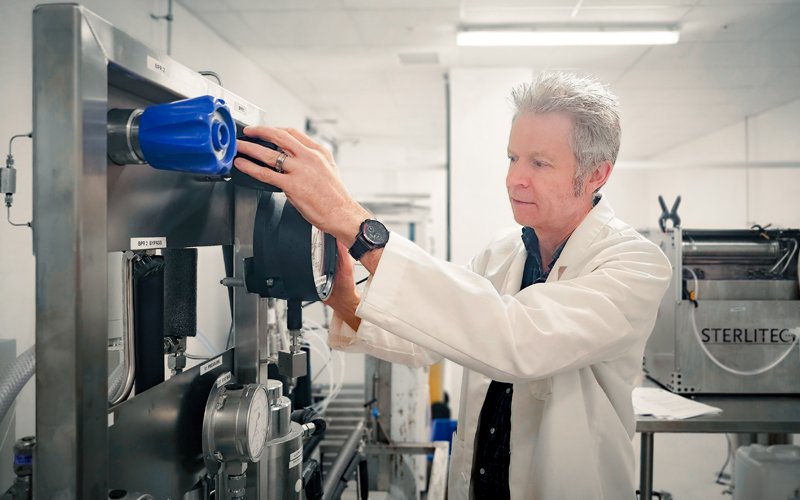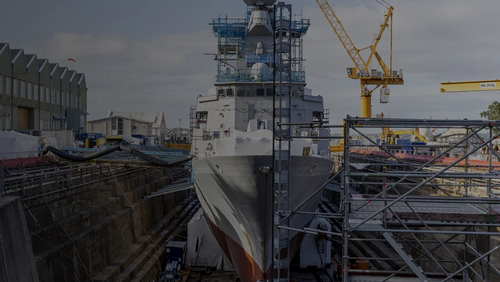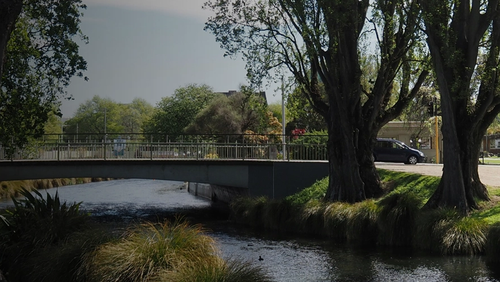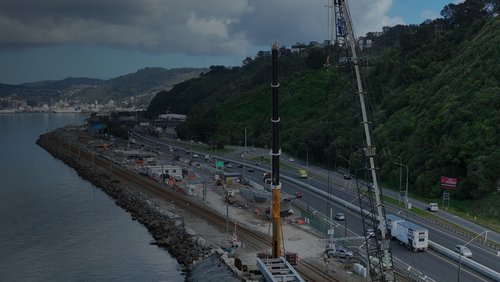18 Jul 2024
Chemical engineer Dr Owen Catchpole FEngNZ on innovation and sustainability in the primary sector; artificial intelligence, and why more engineers should go into governance.
Early on in his adult life, Dr Owen Catchpole FEngNZ knew he wanted to become a chemical engineer.
“I took chemical engineering at university because I wanted to do chemistry at a large scale and for my work to be of benefit to New Zealand,” he says.
After several decades in the profession, it is clear he has done just that. Team leader in the Food Processing Technology team within the Biotechnologies research group at Callaghan Innovation, where he is also Chief Engineer, last year he was awarded the Scott Medal by Royal Society Te Apārangi for being a world leader in the development of processes to extract high-value bioactive chemicals from biological materials. In 2022, he was made a Fellow of the Royal Society, the first scientist from Callaghan Innovation to receive the honour.
Following the completion of his Bachelor of Chemical Engineering at the University of Canterbury, Owen says he had to complete some practical projects, which he did at the Department of Scientific and Industrial Research (DSIR).
“When my academic results came out, serendipitously, two chemical engineers were leaving, and I was offered a job. We had a client at the time who had a vision of making low-fat, low-cholesterol meat, and also a cholesterol-free butter, and he thought that supercritical extraction might be a way to do that.”
He continues: “We were seeing a number of R&D articles emerge on supercritical extraction and companies that were pioneering it in Europe and the US. My job was to design and build some lab-scale equipment from scratch, to learn out how to apply this technology.”
I took chemical engineering at university because I wanted to do chemistry at a large scale and for my work to be of benefit to New Zealand.
Supercritical extraction is a process that uses carbon dioxide at high pressure to extract natural products from biological materials. Because any residual carbon dioxide evaporates after processing, there is no contamination in the finished product, unlike with traditional petrochemical solvents.
Realising the potential of the technology, the DSIR funded Owen to complete a PhD in supercritical extraction at the University of Birmingham, “to learn from experts in Europe and bring that knowledge back to New Zealand”.
On his return, Owen began to make larger-scale equipment, followed by a commercial-scale extraction plant hired to a start-up called Supercritical Extraction New Zealand Limited.
“There was a range of high-value seed oils we helped them make in those early days, such as evening primrose and borage seed oil. We also helped them make an extract from totara heart wood that was used in cosmetics, which we actually made from old fence posts.”
Owen says the technology has greatly expanded since then.
“There’s a large supercritical extraction plant in Nelson. One of its main products is oil from green-lipped mussel powder, but it also produces hop extracts for making beer and other extracts for nutraceutical and functional food applications.”

Photo: Callaghan Innovation
He adds: “The great advantage of CO2 extraction is that it’s solvent-residue-free and these high-value extracts now make millions of dollars of revenue for New Zealand per annum.”
More recently, the process has been applied to extracting cannabinoids from cannabis and hemp.
From the micro to the macro, Owen has widened his focus on the primary industry as a whole, as he helped initiate the Bioresource Processing Alliance to create a best-team, best-equipment approach to solving byproduct problems for industry.
“Our main goal is to recover more value out of byproduct streams from primary industry – byproducts that would otherwise end in very low value applications or in a landfill. We also want to reduce the use of fossil fuels and water.”
He says one outcome by SCION, a partner in the alliance, was making biomethane out of food scraps.
“And more recently, we have worked with a company to turn second-grade avocados into a freeze-dried avocado powder.”
Creating innovations that result in sustainable outcomes is a key focus.
“Sustainability was a big driver for the avocado project, as it turned something from a problem into a solution.”
Owen is now venturing into a new area entirely – artificial intelligence (AI).
“I’m part of a project called Cyber-Marine, led by Plant & Food Research in Nelson, and its grand aim is to create the fish processing factory of the future.”
He says AI will be used to analyse the marine biomass entering the factory to determine what type of advanced processing technologies should be applied to give the optimum set of high- value products.
“These might be oils or protein-based products or whatever is most appropriate. This could transform our seafood industry and create a much more sustainable method of utilising marine biomass and create less reliance on wild-catch.”
Looking to the future, Owen is eager to see New Zealand become a more innovative and high-value economy.
“I want to see that’s done in a sustainable way and help to mitigate some of the effects of climate change. I want us to be part of the solution rather than the problem.”
He’s a strong advocate for engineers and scientists having governance roles on boards, saying that, to their detriment, many boards in Aotearoa lack technical expertise in these areas.
“If you look at the big tech companies in the US and Europe, the CEO has often got some form of engineering background and the boards usually have engineers on them as well.”
He says engineers bring valuable expertise to boards, “... particularly with regard to problem-solving, strategy and economic viability”.
This article was first published in the June 2024 issue of EG magazine.






